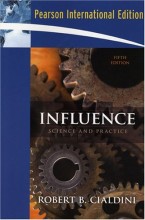Psych. and psychiatric aspects of brain disorders II: Sexual function in patients with neurological disorders
7 important questions on Psych. and psychiatric aspects of brain disorders II: Sexual function in patients with neurological disorders
Kluver bucy syndrome
- visual agnosia
- hyperorality (examining things with the mouth )
- hypermetamorphis (tendency to react to all stimuli)
- emotional changes, absence of fear or anger
- changes in dietary habits
- hypersexuality
- Is caused by bilateral temporal lobotomy
- Poeck argued that the only real feature is hyperorality, and only hypersexuality is not enough for a diagnosis of KBS
- lesions only limited to the amygdala do not produce features of KBS
Paraphilias and sexual orientation
- sexual deviation -> peadophilea zoophilia e.a.
- sexual disturbance -> random orgasms, hyper or hyposexuality e.a.
- sexual deviation is associated with early onset lesions (prior to age 3)
- associations with temporal lobe abnormalities and peadophilia,
- bitemporal dysfunction with right-sides dominance results in hypersexuality
Temporal lobe epilepsy
ictally
- involves sexual emotions
- sexual and orgasms like feelings
- sexual automatisms involving statements, masturbation e.a.
- Higher grades + faster learning
- Never study anything twice
- 100% sure, 100% understanding
Temporal lobe epilepsy
Postictally
- patient seeks sexual outlet, but is not considered part of postictal phase
- postictal sexual arousal was only observed in patients who were not hyposexual interictally
[right hemisphere is mostly the mediator of sexual function in TLE compared to the left 2:1]
[hypersexuality is associated with right side, hyposexuality with left side]
Sexual outcome after temporal lobectomy
- may reduce paraphilias, lower libido, restore normal sexual functioning, or result in hypersexuality.
- more changes in sex drive after right temporal resection compared to lef temporal resection
Hypersexuality after temporal lobectomy
- Partial KBS after unilateral lobectomy
- hypersexuality is a rare but dramatic outcome of unilateral temporal lobectomy
Brain regions mediating sexual behaviour
- Sexual desire
- excitement
- orgasm
Phase one
- subcortical regions
Phase two
- cortical structures
Phase three
- septal regions.
The question on the page originate from the summary of the following study material:
- A unique study and practice tool
- Never study anything twice again
- Get the grades you hope for
- 100% sure, 100% understanding






























